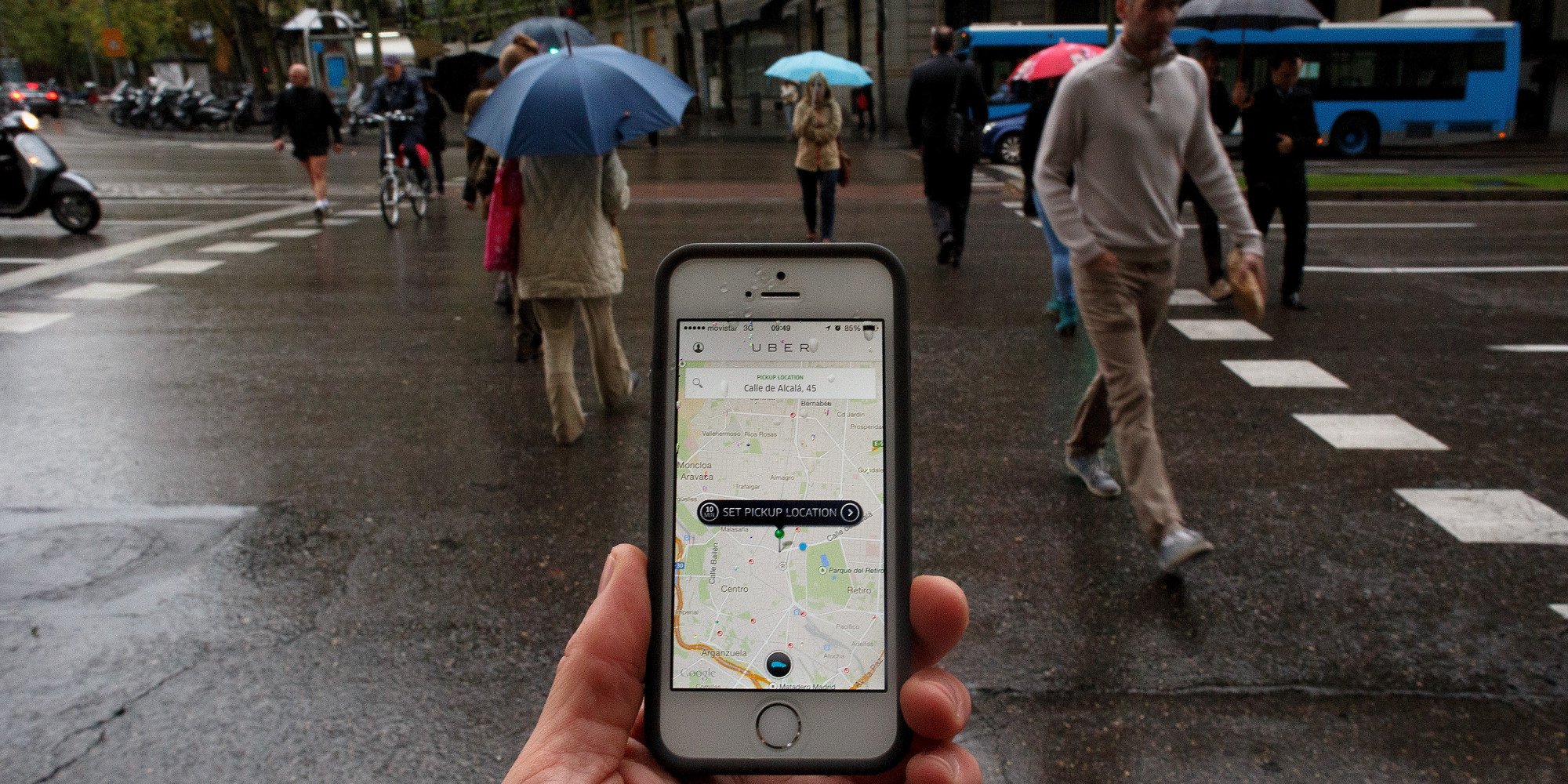
(Source: http://i.huffpost.com/gen/2244010/images/o-UBER-facebook.jpg)
“Why don’t we have Uber?” is hardly a new discussion in Vancouver. In brief, the typical arguments include the decreased demand for the taxi industry, safety concerns, and existing high costs of Vancouver taxis.
Before I dive any further, I will state that I believe Vancouver should allow Uber to operate.
The City of Vancouver, under Mayor Gregor Robertson, have declared an action plan to be the greenest city in the world by 2020. The main focus behind becoming a green city is the sustainability of our actions.
My classmate, Henry Liu, discusses Uber’s side effects on environmental preservation by reducing the number of vehicle trips made everyday. I think the effects of having Uber operate in Vancouver will reduce more than vehicle emissions and effect all three pillars of sustainability.
Environmental: Travis Kalanick describes the effects of uberPOOL very well through the density map of San Francisco. His figures speak for themselves by reducing 7.9 mil miles and 1.4K metric tonnes of CO2 in eight months. Although, Uber doesn’t position itself as an environmentally focused company it has large effects on the cities it operates in.
Financial: The TED talk states that Uber Drivers earn 43% more than taxi drivers. If you’ve used Uber, you’ll know that a car will usually arrive in under 10 minutes. Closer to the destination, the driver will most likely have the next customer waiting before they drop you off. The constant demand for drivers mean that they are working more hours effectively compared to taxi drivers. We’ve all seen long lines of taxis waiting at an airport or driving back downtown on a Friday night empty because of the current pick-up zoning bi-laws. At the end of the day, the affordability of Uber increases demand and as a result, drivers are making more money.
Social: Joe Gebbia, the founder of Airbnb, states that the shared economy is about creating connections with people. Driving in an Uber is very personal as you are sitting in their personal car. It smells like them, the knick knacks are theirs, and the stains are theirs.
Vancouver has a common reputation for being a disconnected city and hard for new comers to integrate themselves. Social groups often exist in isolation and it can be challenging to enter a network of peers. In a little way, Uber has the potential to connect our city socially. Human interaction and conversation are important for mental health and being a member of society.
As Vancouver gets closer to 2020, it needs to reconsider what the greenest city in the world will look like and if allowing Uber in our city moves towards this goal it should be able to operate.
Hey Shomas, it is really interesting to see all the reasons why uber should be incorporated into Vancouver, I agree 100% with your points. In my experience of how uber has been received in Mexico for example, i feel the main reason hindering the approval of uber, is how the competition is really unhappy about this new business. In Mexico, taxi drivers will use to protest by harassing uber drivers. However this is an issue that has more evidence to suggest that, incorporating uber in Vancouver, has more advantages that downsides.
Hi Shomas! This is great post! I agree with you completely. I feel that you made some awesome points when it comes to the positives of Uber in Vancouver. By touching on the three pillars of sustainability, you were able to touch on the aspects that make an organization truly sustainable. I like how you pulled information regarding the environmental improvements that Uber can make from San Francisco, since it is very similar in terms of density and traffic congestion to Vancouver and think it is quite a good comparable city. Next, financially you made a good point talking about the constant business that Uber drivers have. I personally think Uber will the most successful when it comes to providing service to those who live in the outskirts of Vancouver, as many taxi companies do not even drive in these locations and the transit systems are non existent. Socially, connecting Airbnb’s business plan with Uber’s, which is a proven success, Uber has major potential for success. The only thing I am curious about is since the taxi industry is starting to modernize their logistical systems, by implementing mobile applications that tell you exactly where your driver is and how long they will take to arrive, is Uber able to compete? Furthermore, what happens to all the already employed taxi drivers in Vancouver? Will both industries be able to exist together? Otherwise great job Shomas!
I have to say, Uber definitely changed my life when I was in Toronto! It was super convenient, the drivers were usually friendly and chatty, cheaper than a regular cab, and just overall made me feel like I was in my own car. Which is why I am also very surprised that Vancouver has not launched Uber yet, knowing the poor mapping system of the taxis and long wait times.
To your point about how Uber does not market itself as sustainable, I wonder if they should position themselves as a sustainable company in Vancouver? If Vancouverites are so keen on being the greenest city in the world, I believe Uber should switch their marketing messages and be more aggressive in their tactics. I also agree to your point about Vancouver being socially isolating, which is hard to believe sometimes because people here are super friendly and welcoming. With Uber picking up international momentum, I am hoping that UberPOOL will increase that social aspect of Vancouver!
For a period of time Uber was driving puppies around the city, do you think that was a clever tactic?